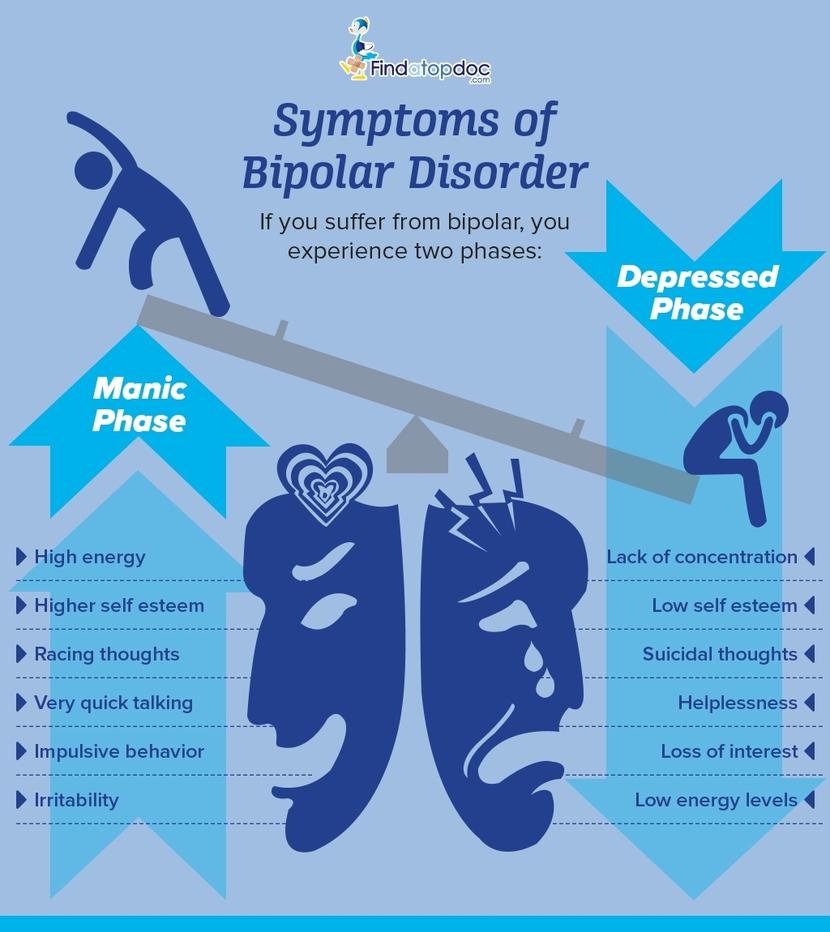
Consider talking with your doctor if you’re pregnant or plan to become pregnant. It doesn’t mean you can’t be on medications, and often it’s better to be on medications than not to be. Mood stabilizers in pregnancyīeing on a mood stabilizer during pregnancy might mean being monitored more closely or making adjustments to your treatment plan. Some medications may interact with mood stabilizers and can cause potentially harmful side effects. If you’re taking other medications while taking a mood stabilizer, it’s a good idea to make sure your care team is aware. Keep these safety considerations in mind when it comes to mood stabilizers.
#Bipolar manic episode professional#
It’s a good idea to let a healthcare professional know if you’re experiencing withdrawal effects. That means you stop using them by gradually decreasing the dosage over time. Mood stabilizer medications usually need to be tapered slowly. having thoughts of suicide or engaging in self-injurious behavior, or both.Other withdrawal effects of mood stabilizers may include: Stopping Lamictal suddenly may lead to seizures or other concerns, such as nausea and vomiting, irritability, and relapse, according to the FDA. In some cases, withdrawal symptoms might be more severe. Stopping your medications, however, could cause your bipolar disorder symptoms to return. Though, in most cases, any withdrawal symptoms will be mild, according to Cidambi. Yes, you may experience withdrawal symptoms if you stop mood stabilizers because your body has gotten used to these medications. “Although depression is less of an issue, mood stabilizers can still help with suicidal ideation or other negative thoughts.” “In bipolar II, it helps with moderating and depression,” says Cidambi. In bipolar II disorder, you have cycles of major depression along with a milder form of manic episodes, known as hypomanic episodes.It’s more severe than bipolar II disorder, and most people who have this type have had major depression. Bipolar I disorder consists of manic episodes and depression and is the condition many people think of as bipolar disorder.There are several types of bipolar disorder, including bipolar I disorder and bipolar II disorder. This is why some - but not all - antipsychotic and antiepileptic medications are approved by the Food and Drug Administration (FDA) as mood stabilizers. These classes of mood stabilizers have been evaluated through clinical trials and research. Three kinds of mood stabilizers vary in how they work to treat different mental health conditions: You can get a mood stabilizer only by receiving a prescription from a licensed healthcare professional, not over the counter.Īre mood stabilizers for bipolar I or II disorder? They can also treat other conditions, such as borderline personality disorder and migraines. The other medications above were initially developed to treat seizure disorders but can treat symptoms of bipolar disorder.
/roller-coaster-eustress-fun-excitement-KNSY-Picture-Press-Getty-Images-56a906f25f9b58b7d0f76ea9.jpg)
Some common types of mood stabilizers, with the common brand name, include:ĭoctors most often prescribe lithium for treating bipolar disorder symptoms. It’s not clear how lithium works, but it “likely targets the activity of an enzyme or multiple enzymes inside cells,” Cidambi explains. Lithium is the most popular and oldest of the mood stabilizer medications.

This doesn’t mean you won’t experience different moods throughout the day, but you may have a lower chance of experiencing manic episodes or depression - the kind that can last for several days or weeks. Mood stabilizers will not cure bipolar disorder, but they can help balance your moods. “Mood stabilizers work by eliminating the more extreme ends of these, allowing you to function normally.” “You may spend money irresponsibly during a manic episode, only to regret it later, or during a depressive episode,” says Cidambi. Indra Cidambi, medical director at the Center for Network Therapy in New Jersey.Īlso, people with bipolar disorder may experience changes in cognition. With bipolar disorder, your mood can go from a high feeling of euphoria, or manic episodes, to low feelings of depression, says Dr.


 0 kommentar(er)
0 kommentar(er)
